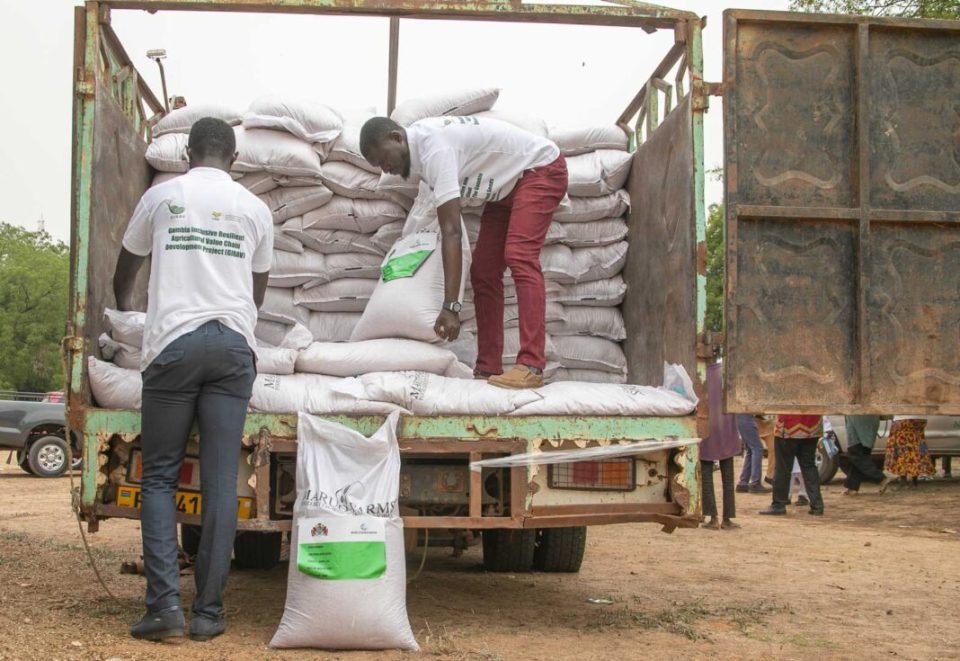The Gambian Ministry of Agriculture, the World Bank and CORAF officially launched, in Abu-ko not far from Banjul, the national distribution campaign of certified seeds for the year 2022, in Gambia. The ceremony saw the presence and participation of several other stakeholders including the farmer Organizations, the seed quality control officers etc.
The initiative is part of the Gambia Inclusive and Resilient Agricultural Value Chain Develop-ment (GIRAV) project operations.
“A total of 12,500 smallholders producers, of which 10,000 are producing rice and 2,500 are pro-ducing maize, are targeted for this seed programme and we anticipate that 50% of them will be women,” said Ms. Feyi Boroffice, World Bank Resident Representative in The Gambia.
The World Bank is funding the GIRAV project, which targets smallholder farmers and small agri-businesses operating in four identified priority value chains: rice, horticulture, cashew and poultry—in conjonction with maize for feed.
“Gambia staple food is rice and it is consumed in almost all households. And less than 40% of the quantity consumed is produced locally. Hence, (XX) millions of US dollars are annually spent on food import,” said at the official distribution launching ceremony, Honorable Dr. Demba Sabally, Minister of Agriculture of The Gambia.
“To curve this negative and unsustainable trend, the Gambian Ministry of agriculture in col-laboration with the World Bank, CORAF and AfricaRice, has introduced climate-smart and salt tolerant rice varieties in the farming systems in 2022 seasons,” added the official. In addition to rice seeds, beneficiaries will also receive certified maize seeds, for poultry feed.
Mr. Abdoulie Touray, Coordinator of the GIRAV Project in The Gambia, believes that the pro-vision of these high-quality certified rice and maize seeds will not only help farmers access to im-proved planting materials , but will enhance production and productivity hence contribute to food self- sufficiency and by extension, reduce the country importation of rice and maize.
A total of 200 metric tons of rice seeds and 50 metric tons of maize seeds will be distributed to farmers in the country. As a regional body, CORAF is responsible for facilitating the transfer of technologies across the region, within the framework of the GIRAV programme.
“The improved and climate-adapted varieties that are given to Gambian farmers will enhance their resilience to climate change and other challenges and help Gambian agriculture transition from subsistence to market-oriented agriculture,” said Professor Nieyidouba Lamien, Senior Project Coordinator at CORAF.
The GIRAV project aims to promote the development of inclusive, resilient and competitive agricultural value chains, with a particular focus on smallholder farmers and agribusinesses in The Gambia.
The project is funded by the World Bank to the tune of 40 million USD.
It is expected to directly benefit some 50,000 farmers —of which at least 50% are women and 30% youth— and at least ten (10) Small and Medium Enterprises (SMEs). It has a duration of five (05) years and will come to the end in December 2026.


